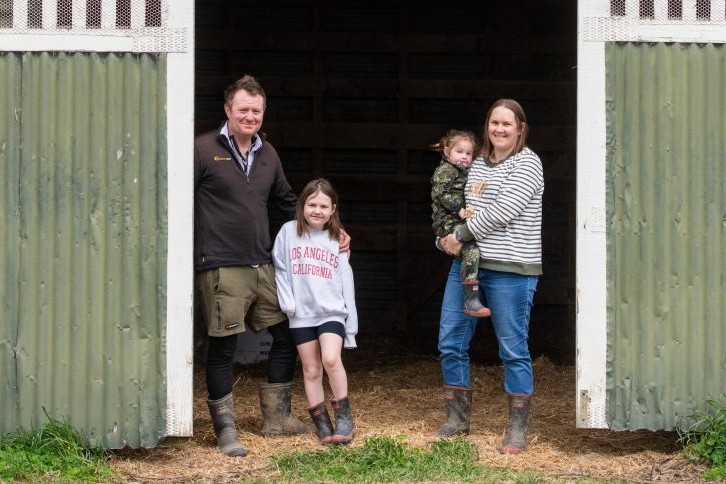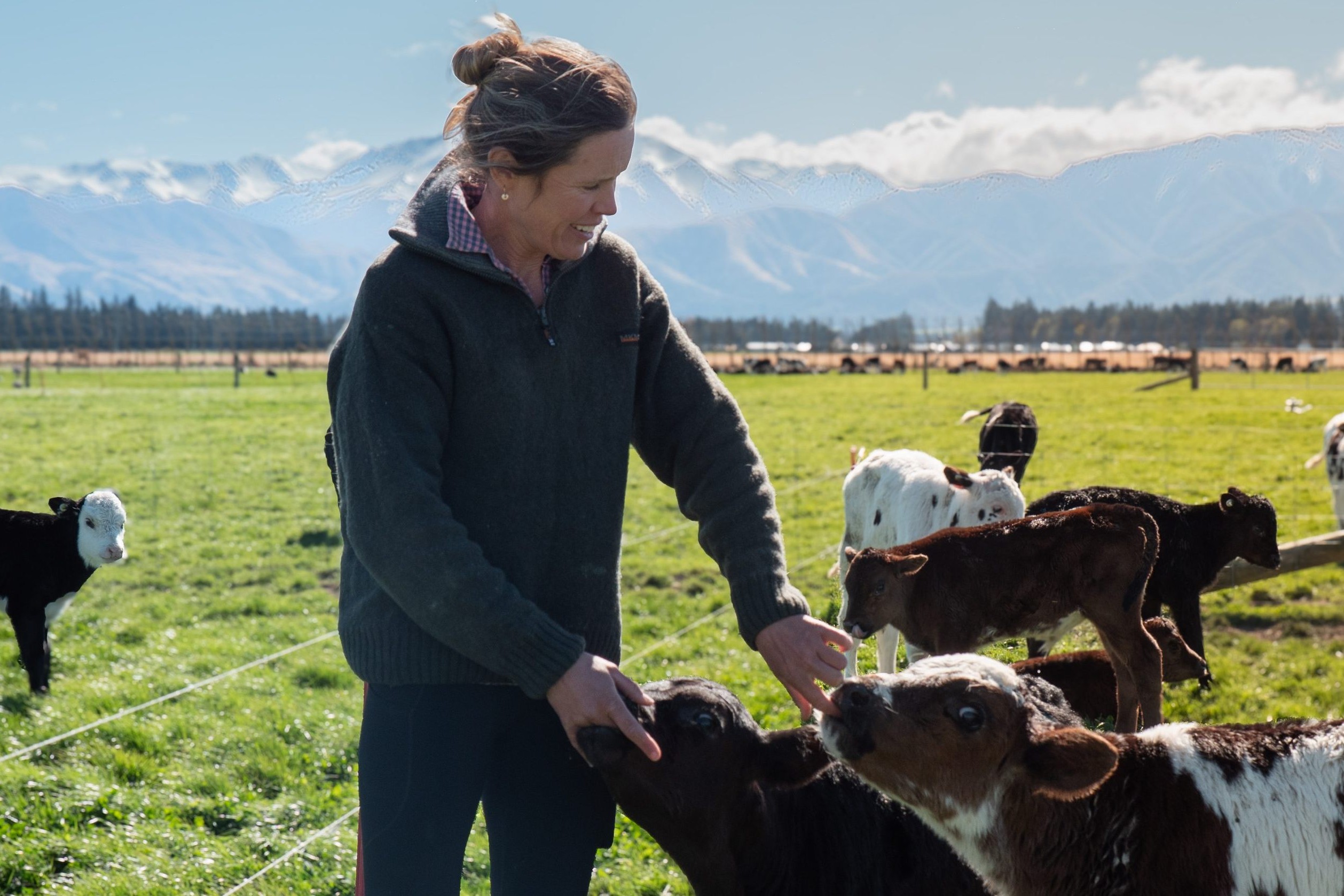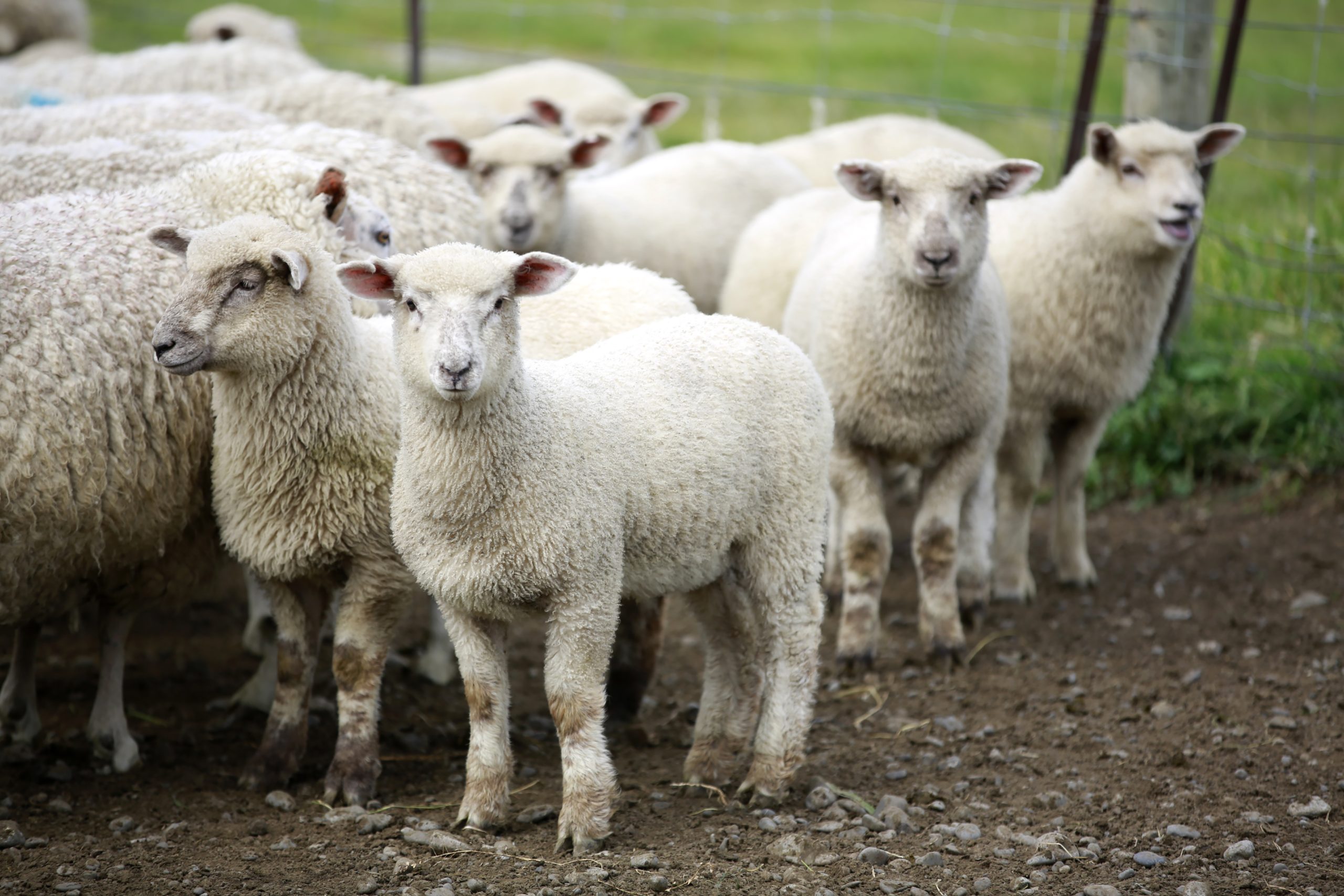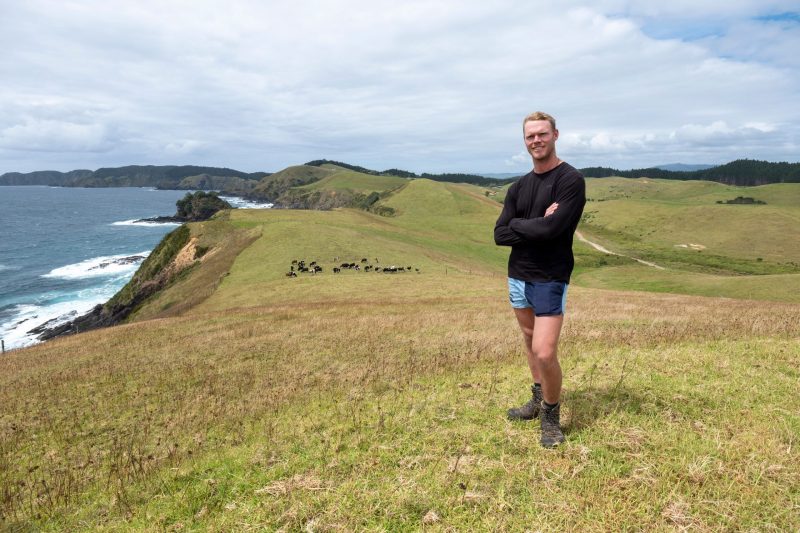BY: CHRIS MCCULLOUGH
Being prolific mothers and producing excellent meat carcases are just two of the attributes a Northern Ireland sheep breeder is discovering about his Dutch Spotted Sheep.
Edward Adamson farms on the east coast of Northern Ireland at Kilroot, Carrickfergus, right beside Belfast Lough and the Irish Salt Mines.
Having historically been a dairy and sheep farm, in 2005 Edward decided to quit milking cows and focus on the sheep. He now runs a large sheep flock of over 800 ewes, as well as 60 suckler cows, and is the Northern Ireland development officer for the National Sheep Association.
Edward’s flock consists predominantly of Lleyn ewes but he also has 50 Clun Forest ewes, 50 Ile de France ewes and 25 Dutch Spotted Sheep ewes in the mix.
He farms 150 acres of his own and rents a further 250 acres on which to graze the livestock and make silage on.
Edward’s interest in the Dutch Spotted Sheep breed first started when he saw them at a show and really liked the look of the sheep. That interest spawned into a purchase of three ewes from the Netherlands and now Edward is starting to export the breed around the world.
The Dutch Spotted Sheep breed dates back to around 1880 and they were originally kept in the western part of Holland between the cities of Leiden, Utrecht and Rotterdam.
During the 1950s, farmers started making use of the specific qualities of the original Dutch Spotted Sheep crossing them with other breeds, such as the Texel or Zwartbles, to breed a sheep with greater profitability, now the modern day Dutch Spotted Sheep.
Dutch Spotted Sheep are very popular within Holland, Europe, the UK, Ireland and further afield. Farmers are finding the breed attributes include a quality carcase, high milk yield, easy lambing, hard feet, mobility and easy temperament.
Edward said: “I first saw Dutch Spotted Sheep at the Royal Welsh Show and was very impressed by them, so much so that I decided to get some of my own.
Farmers are finding the breed attributes include a quality carcase, high milk yield, easy lambing, hard feet, mobility and easy temperament.
“My initial thoughts were that they would appeal to the hobby farmer just keeping a few sheep mainly as pets. They were pretty looking and very quiet. Now the breed is becoming very popular with small and larger sheep farmers alike.
“In 2018 I invested in three Dutch Spotted Sheep importing them from the Netherlands and then started to breed my own animals. I think the Dutch Spotted Sheep can be sold as the friendliest sheep in the world.
“Not only am I breeding full pedigree Dutch Spotted Sheep, I also cross the breed with some commercial ewes and have produced excellent quality lambs with conformation way above what I expected,” said Edward.
Edward’s purebred Lleyn ewes are used to breed from and produce commercial lambs for sale. He is a member of the Co-Op Lamb Producer Group which provides a small bonus to lamb prices when killed at the meat plant.
“The largest part of my sheep enterprise is the Lleyn sheep,” said Edward. “I sell them as breeding sheep and commercially too. They normally kill out around 50 percent and I aim for a carcase weight of 20kgs. At the moment prices are good around £4.45 ($NZ8.47) per kilogramme deadweight plus bonuses,” he said.
Edward is currently flushing a batch of eight Dutch Spotted Sheep to hopefully harvest 50 eggs to transplant into some Lleyn recipient ewes to gain a bumper crop of lambs next spring in February.
He said: “I have a batch of Lleyn recipient females ready for the eggs from the eight Dutch Spotted Sheep. I’m hoping each ewe will produce an average of six eggs allowing two eggs to be transplanted into every recipient.
“I’d be hopeful of 50 to 60 lambs in February as there is strong demand for live Dutch Spotted Sheep as well as for semen and embryos both locally and overseas. Our flock has a high health status and is Scrapie monitored.
“I find the Dutch Spotted Sheep breed to be very quiet, have excellent growth rates from grass, kill out at over 50 percent producing superb meat quality, with some achieving E3s. They make very good mothers and normally lamb at 200 percent,” said Edward.
The market for Dutch Spotted Sheep in Northern Ireland is quite buoyant and now breeders overseas are also showing an interest in Edward’s breeding.
“The spotty markings on the sheep fleeces are proving very attractive to other breeders,” Edward said. “I have sent other breeds’ semen to breeders in Canada and USA and now have enquiries for the Dutch Spotted Sheep from America, Europe and further afield. There are currently no shows happening anywhere thanks to the Covid-19 pandemic so all my marketing is carried out on social media through my Kilroot Dutch Spotted Sheep page.”
As wool is currently not worth a lot of money, Edward is trying to find niche markets for the unique fleece from Dutch Spotted Sheep.
“Not everyone wants a dark coloured fleece as it cannot be dyed,” said Edward. “However, the wool from the Dutch Spotted Sheep is excellent quality and naturally coloured. I have sent a few fleeces off to be spun by local weavers who anticipate that it will produce a sought after, unique product. It is my goal to find a niche market for this wool to help add value to the breed,” he added.




